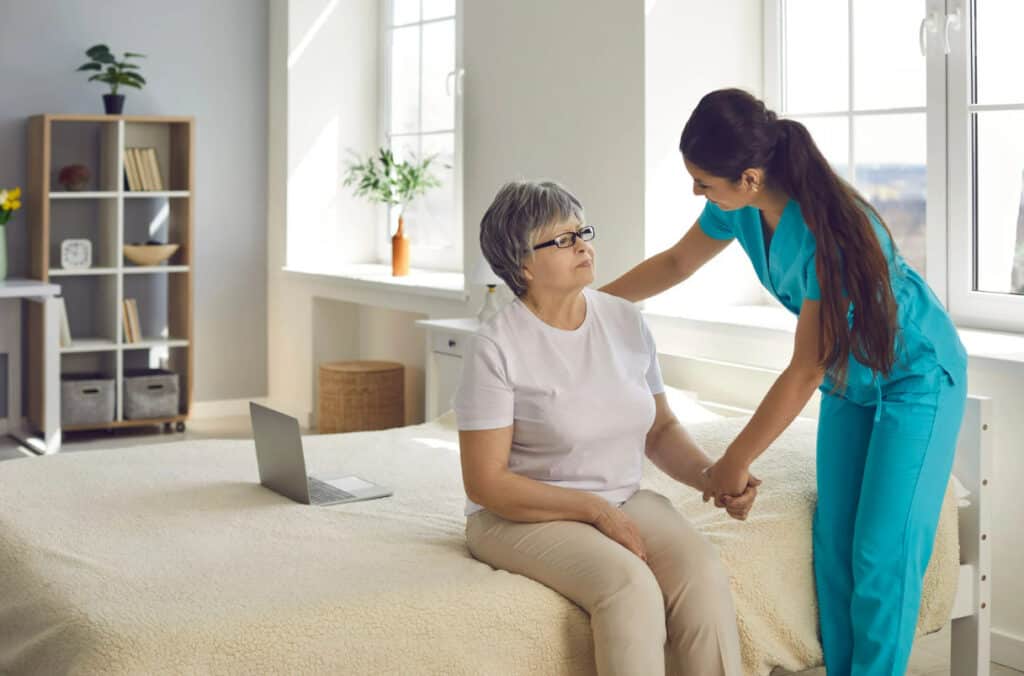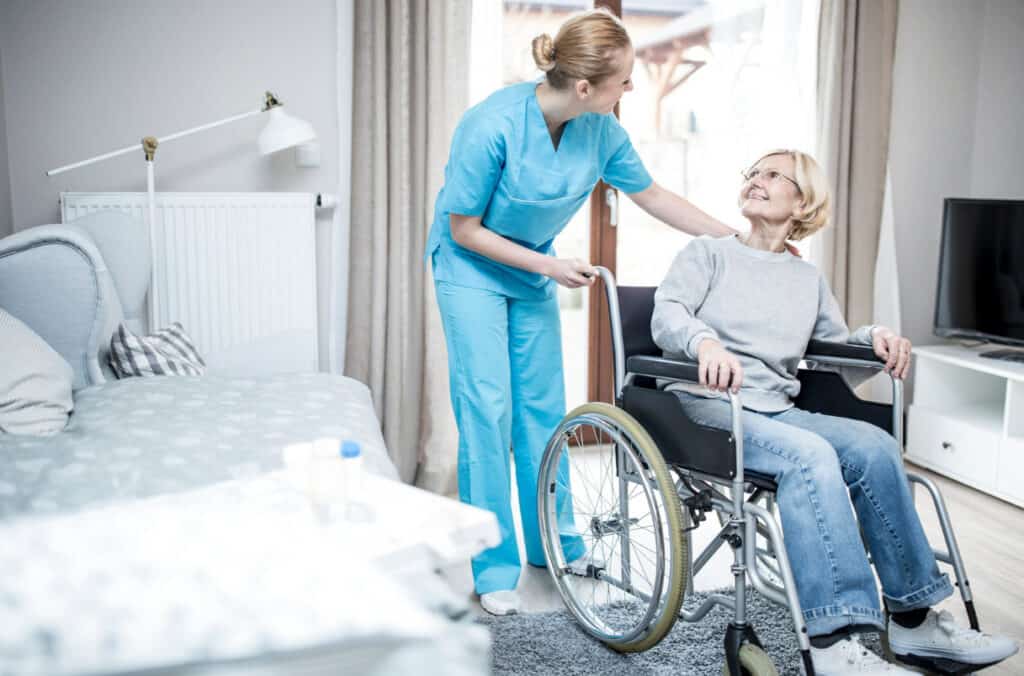Switching from hospital care to home care is a very important part of the recovery process for patients. Making this change smoothly is crucial for keeping up with the care, stopping problems and helping them get better as best as possible.
Table of Contents
This guide gives main actions and thoughts to help someone make the move from hospital care to home care successfully.

Preparing for Discharge
The process starts well before the actual discharge day. Good discharge planning needs coordination between hospital team, patient and their family or caregiver. Begin by having a detailed talk with the healthcare team to comprehend the patient’s situation, plan of treatment and any unique requirements.
Request for a discharge plan in writing. Make sure it has details about my medications, follow-up appointments, diet restrictions and activity limits.

Assembling a Home Care Team
Recognizing and putting together a capable group for home care is very important. Depending on what the patient requires, this team can be made up of nurses, physical therapists, occupational therapists as well as personal care aides.
Choosing caregivers who have both expertise and empathy along with good communication skills is vital. Using a recognized home care agency can make this procedure easier, as they have access to skilled people.
Home Preparation
Prepare the patient’s home for their arrival, make it safe and good for them to get better. Modify things like adding hold bars in the bathroom, making sure there is enough light or removing things that can cause tripping (for example loose rugs).
If the person needs special medical equipment like a hospital bed, oxygen tank or devices to help with movement – plan beforehand so these items can be brought and set up.
Medication Management
Controlling medicine is an important part of home care. Make certain to get the prescriptions and put them in clearly marked containers. Formulate a plan for medicines that shows the amount, time and reason for each medication.
Using tools such as pill organizers and medication reminder apps can also assist. Furthermore, it is important to instruct the patient and caregivers about possible side effects and what they should do if a dose is overlooked.
Clear Communication Channels
Making sure that communication is open and understandable among patients, caregivers, and health providers should be a priority. At home care for seniors can answer medical questions or handle emergencies that need to be identified.
Regular contact through phone or video calls might assist in keeping track of how the patient is doing and dealing with any worries right away. Moreover, writing down a record of the patient’s activities for each day, symptoms they experience and any alterations in their state could be helpful during future appointments.
Follow-Up Care
Continuing with after-care is very important for getting better. Make sure the patient goes to all planned meetings with their main doctor, specialists and other healthcare givers.
These visits are crucial to check on progress, modify treatment methods and deal with any fresh problems that might come up. Transportation arrangements should be made in advance, especially if the patient has mobility challenges.
Education and Training
Teach the patient and their family or caregivers regarding home care, such as how to handle wounds, give injections, utilize medical devices and identify signs of complications.
Various hospitals provide learning sessions or instructional resources for caregivers so they can feel more self-assured in performing these tasks. Encourage caregivers to ask questions and seek clarification whenever necessary.
Emotional Support
For patients and families, when they leave the hospital, it is often an emotional time. They may feel scared or worried about going home because there are changes and responsibilities that come with being outside of the hospital setting (like taking care of wounds).
It’s not only about making them aware but also giving emotional support to help deal with these feelings. This includes encouraging talk regarding fears and stresses, as well as considering involvement of a counselor or support group if required.
Creating a supportive environment can significantly impact the patient’s overall well-being and recovery process.
Monitoring and Adjusting Care
When you return home, keep checking the care plan’s results and change it if necessary. Regularly look back at how the patient is doing and feedback from people giving care.
Take steps to handle any problems that come up, whether they relate with the health of your patient or other issues like their home environment or team for providing care. Flexibility and responsiveness are key to ensuring ongoing success in home care.
Personalized Care Plans
Every patient has different needs, and it is very important to make personalized care plans for them. Work together with healthcare professionals in order to create a customized care plan that takes into account the patient’s medical background, current health condition and personal choices.
This plan should encompass unique objectives like enhancing mobility, adjusting diet requirements and carrying out particular rehabilitation routines. Care plans should be reviewed and updated at certain intervals to show the improvement made by the patient and any alterations in their health condition.
This individualized care guarantees that each patient gets best possible assistance tailored specifically for them, which boosts their general recuperation and healthiness.

Financial Planning and Assistance
Moving from hospital to taking care at home can have financial effects. Think about the costs related with home care, like health equipment, medicine and help from professional caregivers – you will need to plan and set money aside for these things.
Check what your insurance covers and learn which costs they will pay back for you. There are also financial assistance programs, grants or community resources that could help patients and their families with the expenses related to home care.
Talking to a financial advisor or social worker can help in finding these possibilities and making certain the needed money is there for giving top-quality care without causing too much stress on finances.
Successful Transition: From Hospital Care To Home Care
To change from hospital care to home care, it is important to plan and coordinate things well. Also, continuous help needs to be available at this time. If the patient prepares seriously in advance, gathers a strong care group and maintains clear communication channels – these actions will assist them smoothly move into their house for healing recovery.



